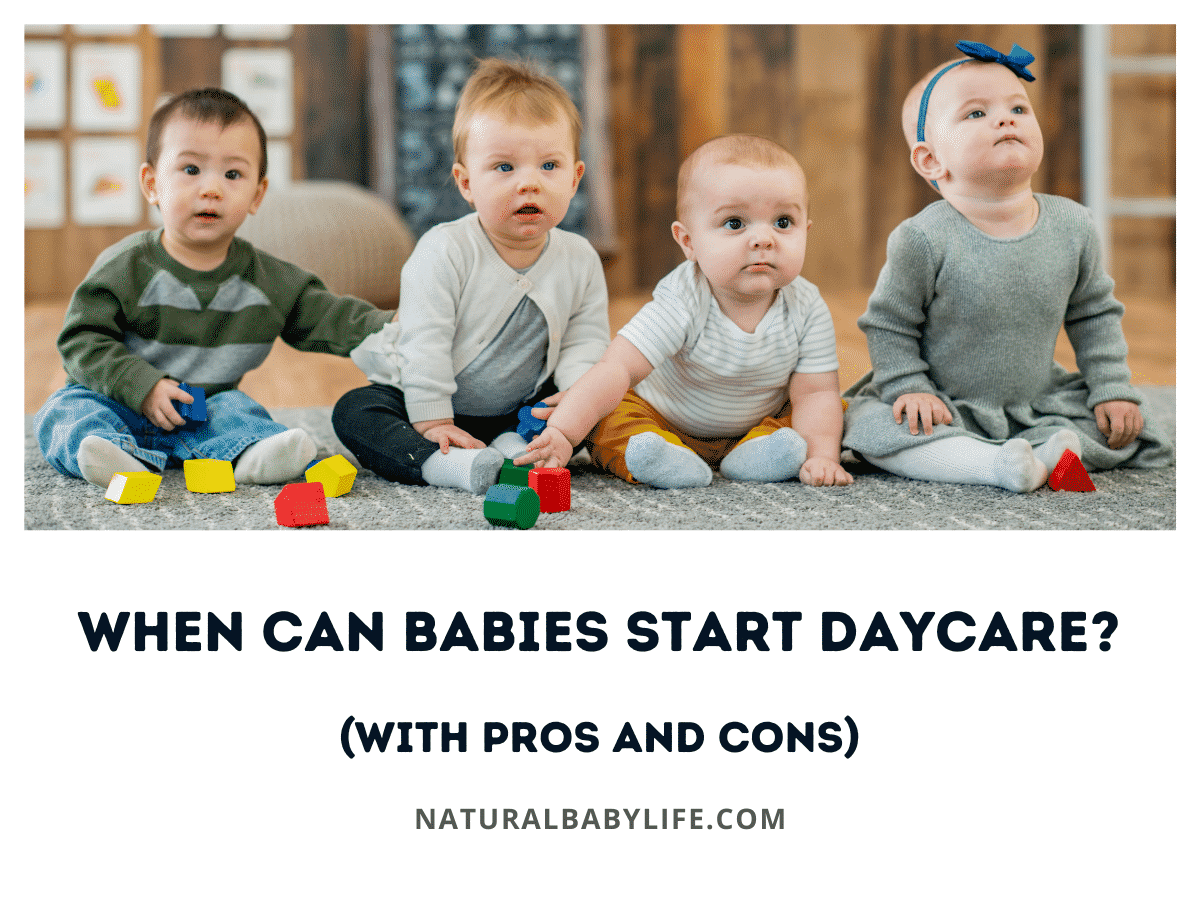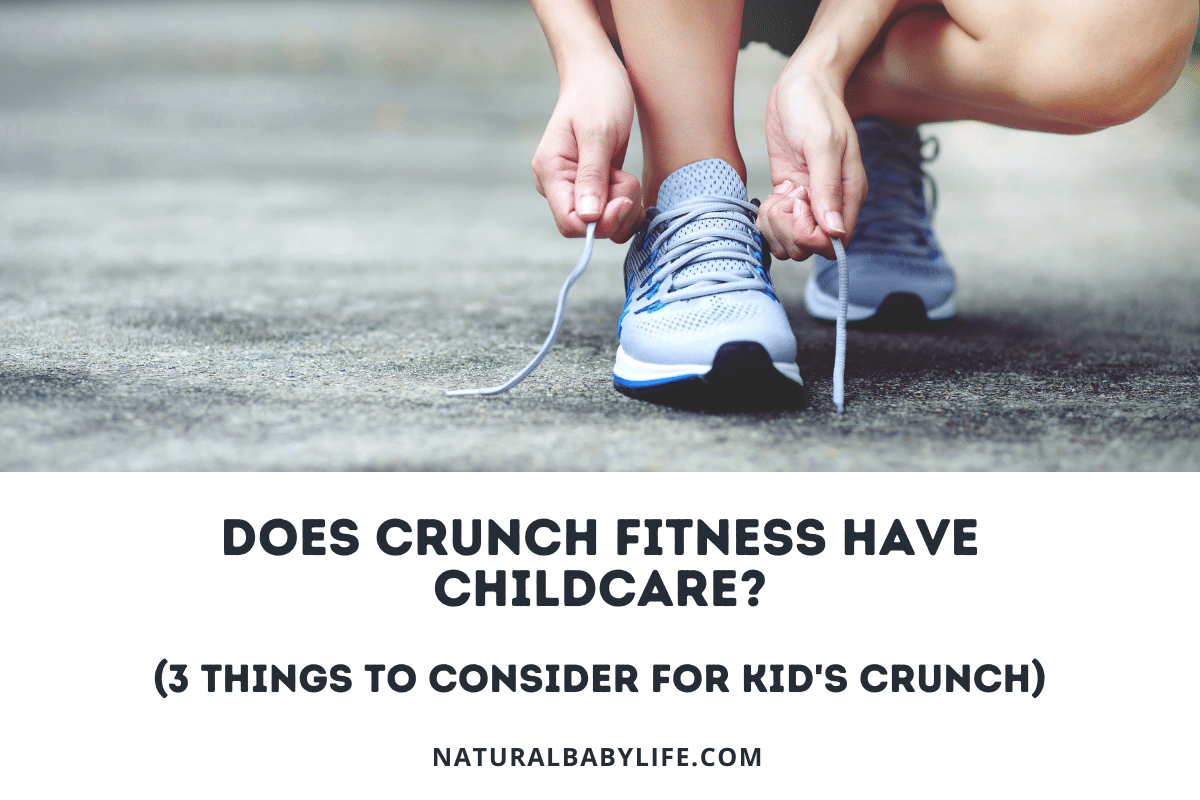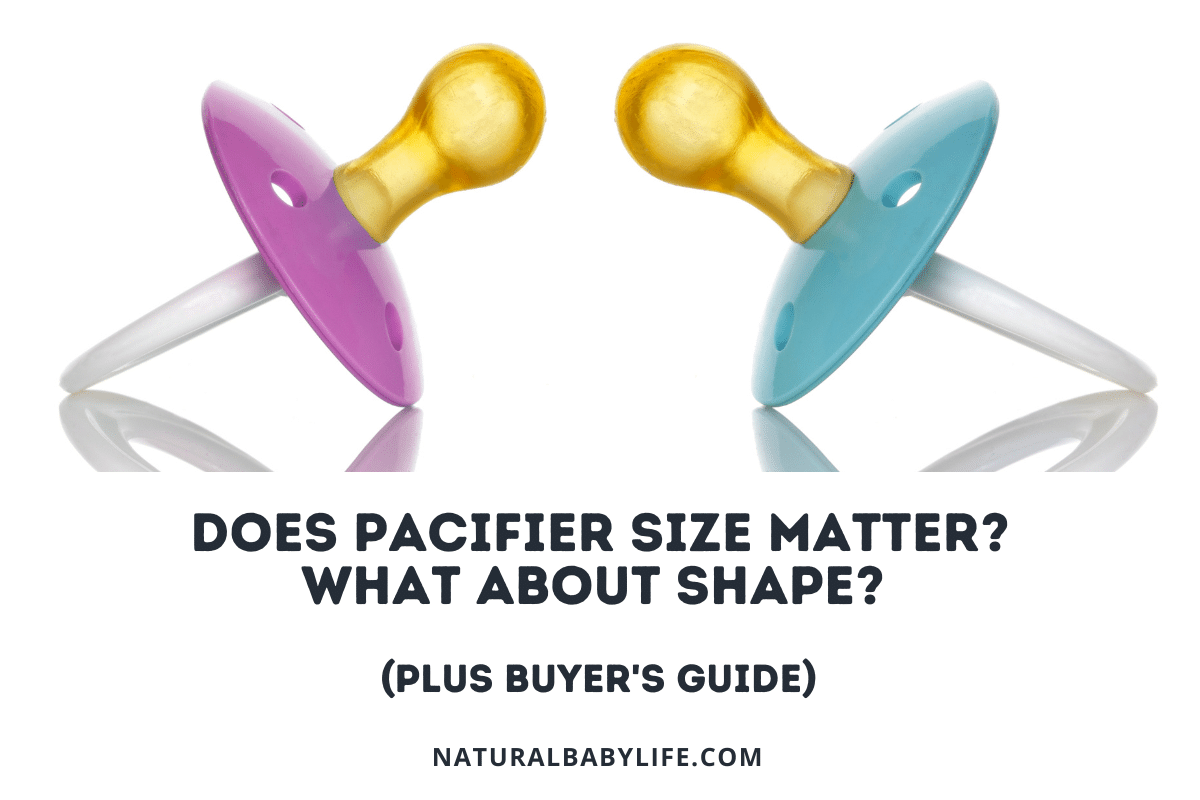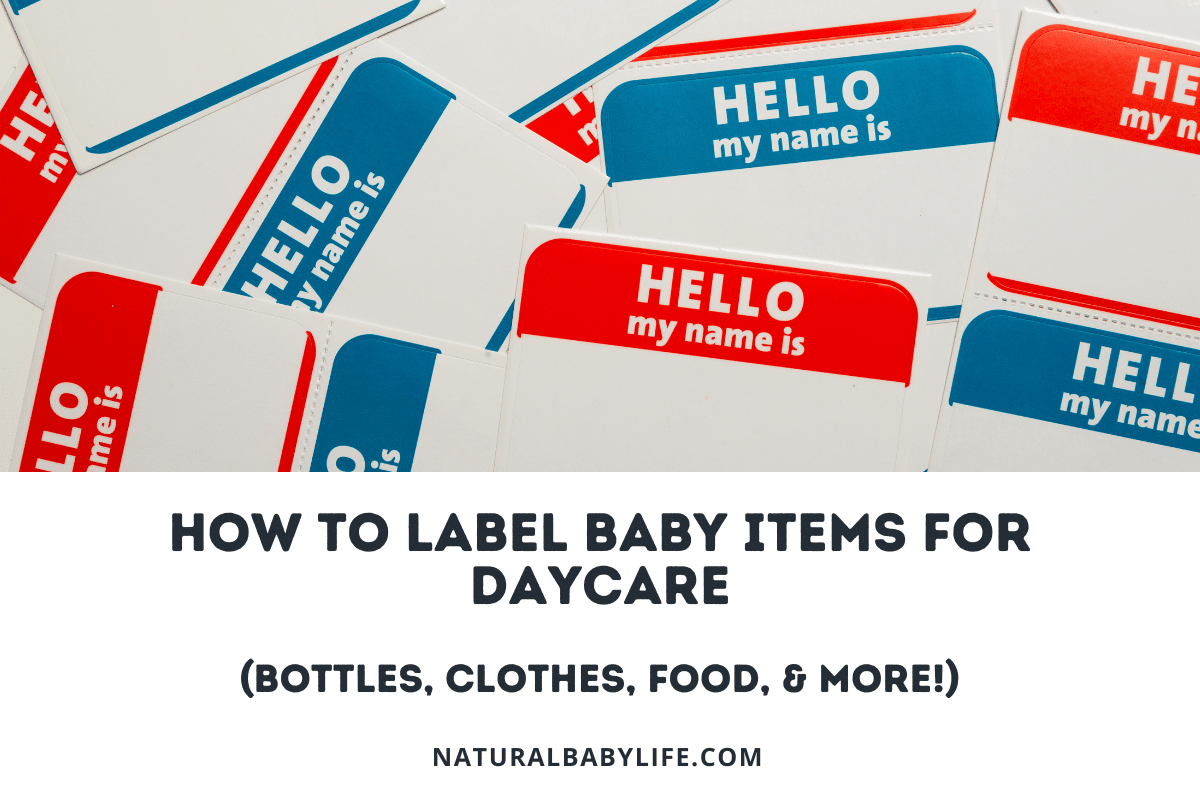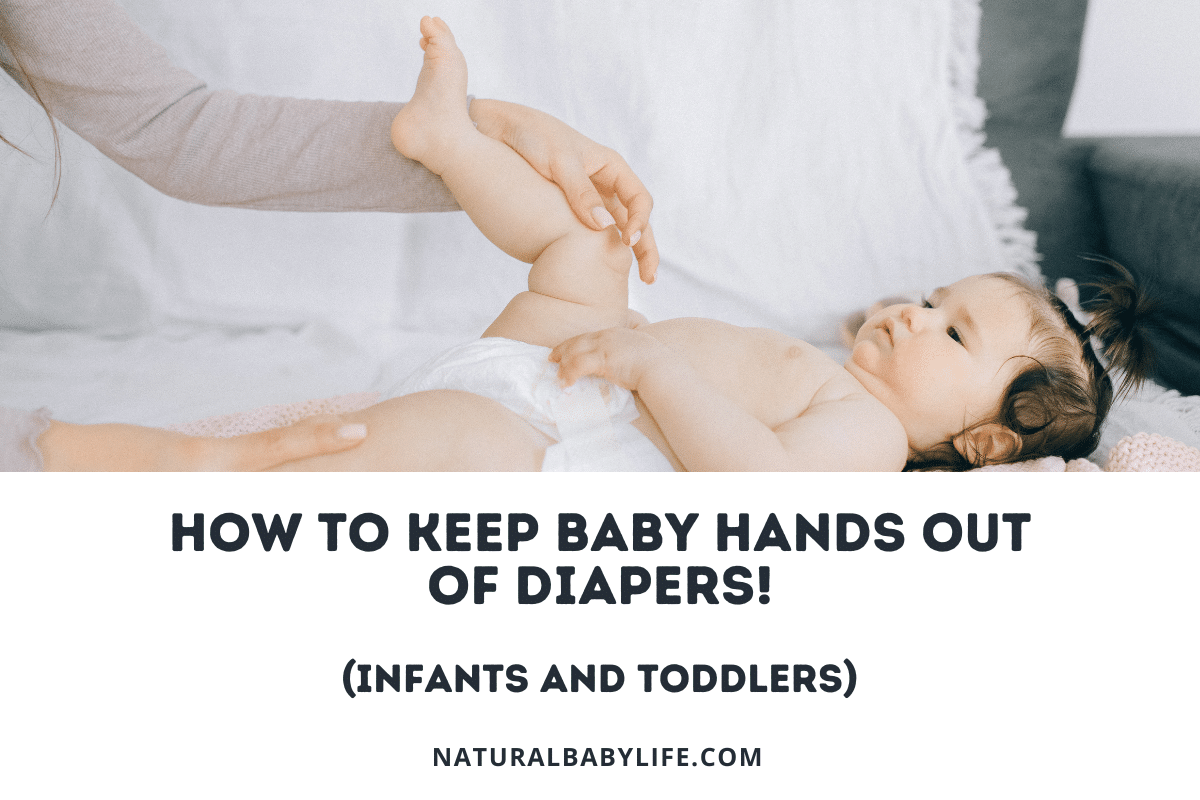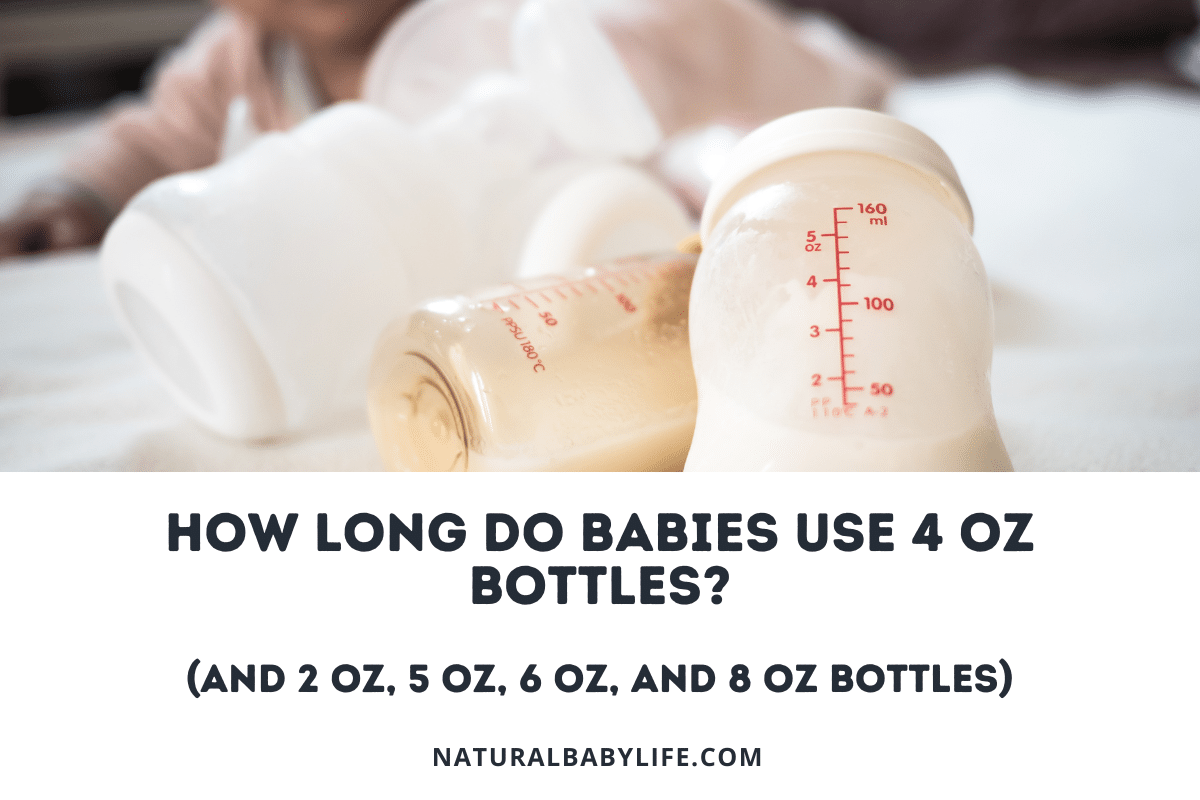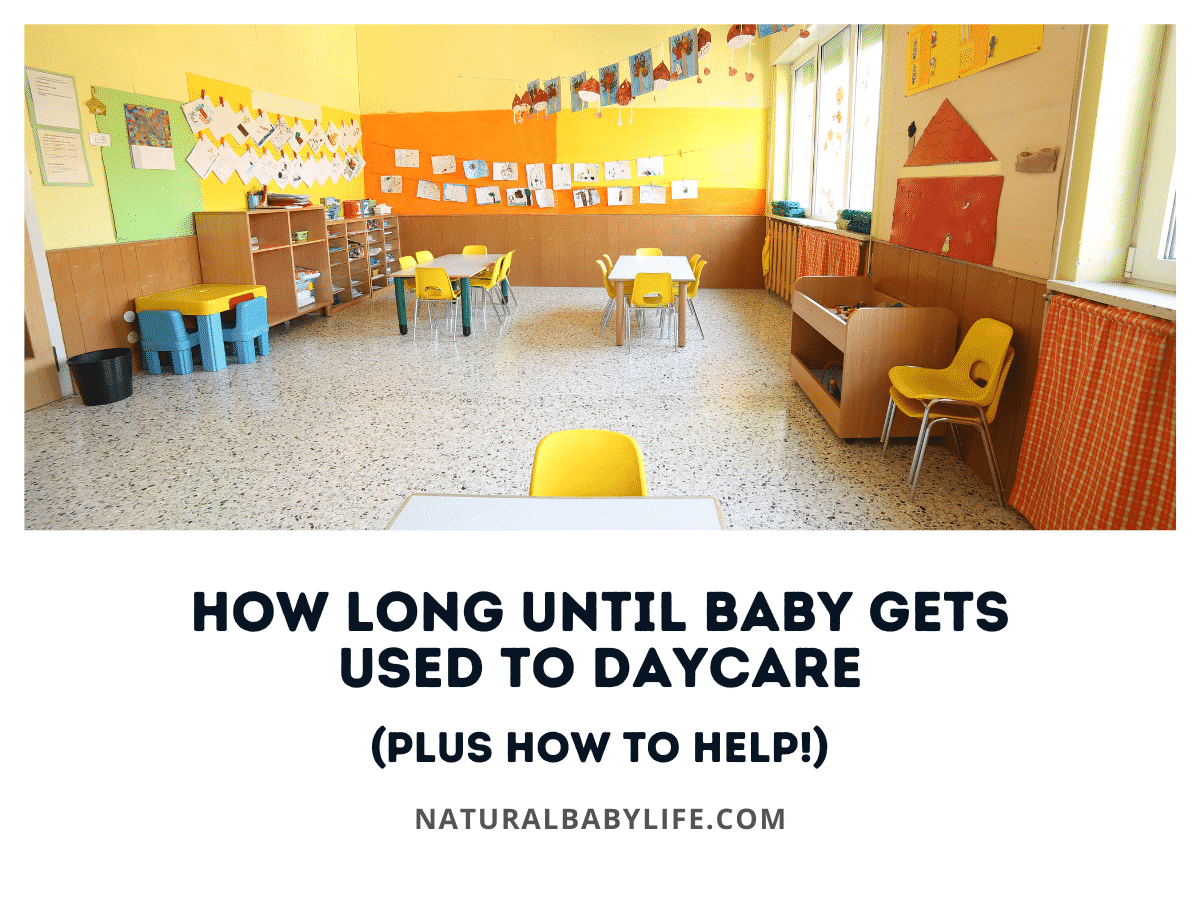When a family has a new baby one of the biggest decisions they must make is about sending their little one to daycare or not. One of the questions commonly asked is what age can they start sending their child to daycare?
Many daycares will accept babies starting at 6 weeks old. A large number of working mothers in the US need to return to work at that time so child care is needed for young babies. There are no laws, on both either the federal or state level, regulating the age an infant can attend daycare; however, six weeks old is the standard starting age.
Trying to decide on when to send your baby to daycare is highly stressful and can be highly emotional. Read on to find out more about sending your young infant to daycare. When should babies start daycare?
Table of Contents
How old does a baby have to be to go to daycare?
In the United States, most mothers go back to work 6 weeks after giving birth. Although there is no standard maternity leave, that is the typically accepted period of “disability” according to insurance providers after vaginal birth. However, some mothers cannon afford to be away from work for a month and a half, and some doctors will release new mothers to go back to work as little as 3 weeks after a c-section. If that’s the case, is it possible to send such a young baby to daycare?
Most daycares require that a baby is at least 6 weeks old in order to attend. There are no national or state regulations regarding how old a child needs to be in order to be in daycare. Each center or in-home daycare will have its own age minimums, but the lowest I found was 6 weeks.
For example, I looked into two nationwide daycare chains to see what their minimum requirements were. Both these companies have a majority of their centers accepting babies as young as 6 weeks. However, this age varies from center to center. At La Petite Academy, a chain with centers across the U.S., a majority of their centers accept babies as young as 6 weeks old; however some locations didn’t accept babies less than 8 weeks old, and others cater to older children and start at 30 months.
KinderCare is another national chain. Most of their centers will also start at 6 weeks old, but, just like La Petite Academy, some centers require a child to be 2 years old.
In-home daycares set their own rules regarding who they’ll accept as well as at what age. These providers may choose to take in a younger baby if they can, but you will need to do significant legwork and communicate directly with each caregiver to find out their specific age limits.
Is 6 weeks too early for daycare?
The need for childcare starting at six weeks is common in the United States since that’s usually when a mother is cleared to go back to work. Many families aren’t able to afford a parent staying home longer so daycare is a necessity.
While many feel that starting daycare that early is not ideal, the reality is that daycare for a young baby is needed. There are many rules and regulations in place in a licensed daycare to ensure that young infants are kept safe.
One layer of protection is having a smaller adult to infant ratio.
In many states, an adult can only care for 2 to 4 infants to ensure that the adult can adequately meet the needs of each child. For example, the state of Alabama requires 1 caregiver for every 5 children from ages 0-18 months. Centers may also choose to have a smaller number of infants per adult.
Can newborns go to daycare?
The larger centers I looked into will not accept a newborn into their care.
Newborns are considered too young and vulnerable to attend. A newborn’s schedule is unpredictable and they require more care. Additionally, as a baby hits the 6-week mark, there is more consistency in their eating and napping schedule.
Newborns tend to need more constant attention since they are waking up every two to three hours to eat. This would make it difficult for daycare to fully cater to their needs in a timely manner.
Best age to put a baby in daycare
There really is no agreed-upon best age for starting daycare.
Some people believe it’s better to send them early so the transition is less stressful for the baby while others believe the ideal age is around one. At that point most babies are no longer nursing, eating solid foods and have had most of their vaccines, which helps many parents feel more at ease with the decision.
Six weeks is typical here in the United States since many mothers have to go back to work at that point. While more and more companies are offering extended maternity leave and parents are able to take 12 weeks due to the Family and Medical Leave Act, many parents cannot afford to do so since maternity leave is often at partial or even no pay.
What’s the worst age to start daycare
Just like with the best age, there really is no agreed-upon worst age for starting daycare. Some parents struggle with the idea of having their tiny baby in the care of someone else, while others are okay with it.
One of the most challenging times for a baby to start may come between 6-9 months old. This is when they tend to struggle with separation anxiety and fear of strangers, which may lead to crying at drop-offs.
Most of the time the baby is fine within minutes but it can be very difficult for the parents to leave their little one crying and screaming for them.
Is daycare good for infants?
Daycare has many benefits, even for babies as young as 6 weeks old. According to the CDC, babies at around 2 months old start to want different activities and will get bored if activities aren’t constantly changing. Being in a daycare environment provides the stimulation babies enjoy.
Babies also start to recognize faces and can figure out if someone is a stranger at around 6 months old. A baby already in daycare will know their caregivers and are willing to go to them, making this transition easier for both the parent and the baby.
The most important thing to do when choosing a daycare for a young baby is to find a high-quality daycare. If you’re looking at an in-home provider, find one who has training or experience in working with young children.
Benefits of putting infants in daycare
Putting a young baby in daycare can have many positive benefits.
One of the biggest positives is the social interaction your baby will have with others, both caregiver other children alike. Babies enjoy being played with as well as watching the world around them.
Some of the other benefits include:
- Providers will have babies on a set schedule and routine.
- Babies are used to being in the care of others making that transition easier for both child and parents.
- Although they will get sick more often as a young baby, there will be probably less sickness once they are in school.
Drawbacks of putting infants in daycare
On the other hand, there are also some drawbacks to daycare.
The most prominent one is the loss of quality with parents during the day. Babies need to spend quality time with their parents so if they are in daycare, it is important to take time in the evenings and weekends to be present with them.
Other drawbacks include:
- Babies will get sick more often.
- Parents don’t have full control over what their baby’s schedule is during the day.
- Parents may potentially miss some of the major milestones.
Sending a young infant to daycare can be very stressful and there are both pros and cons to it. Whether you send your child at 6 weeks or 1 year, be sure to choose a high-quality, licensed daycare to maximize the benefits to you and your child.

